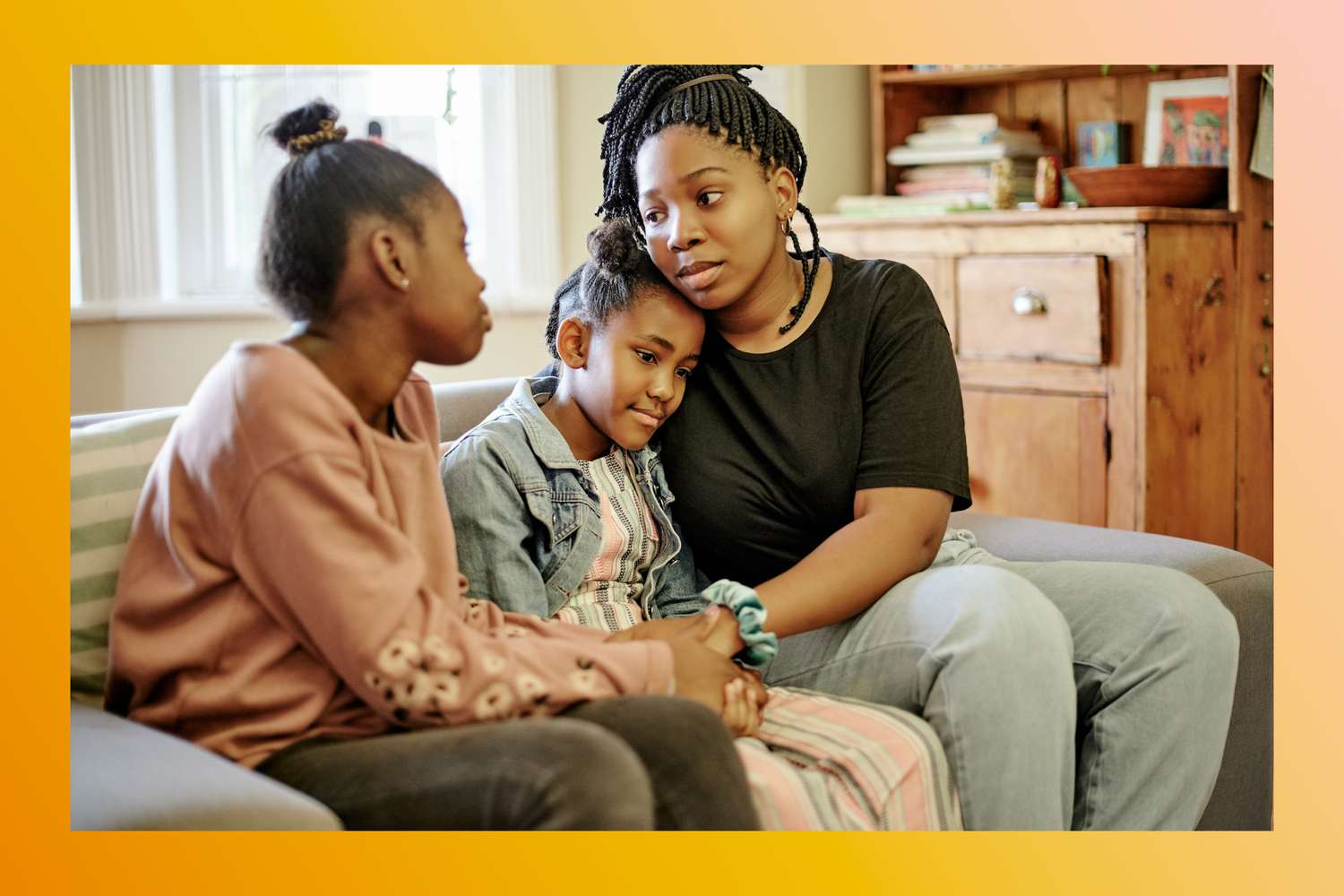:max_bytes(150000):strip_icc():format(jpeg)/GallupPollofBlackFamilies-16f9a28ad9b44bdc8f8b357db11c32c3.jpg)
A recently released Gallup poll highlights that low-income black families with young children are more likely to discuss racial challenges with their children than other families.
According to the survey, 59% of participants said they often (30%) or sometimes (29%) talk to their children about racial challenges and things they may face. Fewer participants (48%) said they talk to their children about advantages they may have because of their race. Twenty-five percent of black parents who participated in the poll said they often talk about strengths, and 23% said they sometimes talk about them.
Data like this can reveal what Black people know from their lived experiences. However, it is important for black parents to continue educating themselves so that their children can be prepared for the realities of life in America.
Getty Images/Mikolette
History of oppression creates generational trauma
In the United States, slavery lasted 246 years, or 13 generations. What followed was another 100 years of Jim Crow laws, violence and murder. There are no official figures, but it is estimated that hundreds of thousands of African Americans were murdered during this period in American history.
Intergenerational trauma associated with oppressive histories takes generations of healing to overcome, and remnants of systemic inequality remain. The effects of oppression remain.
Dr. Nicole Monteiro, a licensed black child psychologist and CEO of Therapeutic and Developmental Centers, PLLC, noted that black families have historically been acutely aware of the impact of race and racism.
“Since the 19th century, black parents have had to prepare their sons and daughters to deal with racial tensions,” she said. “These conversations, often referred to as ‘The Talk,’ are critical to ensuring the safety of a society that may be hostile to their presence.”
Dr. Steven Kniffley, senior associate dean and professor in the Department of Psychiatry and Behavioral Neurosciences at the University of Cincinnati College of Medicine, agreed, adding factors such as low income and the unique environmental stressors of parents intersecting with race Factors (e.g., housing discrimination, health, educational disparities, legal and policing policies) more likely mean that children may encounter more overt forms of racism.
“To address these more overt forms of racial microaggressions, Black children need to use racial microaggression skills more frequently and earlier than other racial and income groups,” he said.
The Gallup poll results highlight the generational trauma that is passed down from generation to generation based on Black parents’ experiences with systemic inequality. They are trying to prepare their children for the real world.
Data shows that 70% of black parents who experience frequent discrimination report talking to their children about racial challenges and situations they may encounter. Half of black parents (51%) who have not experienced regular oppression still have these conversations with their children.
Discussions about race are especially relevant for low-income families because they may often have experiences related to oppression. Gallup polling shows that this is especially true if black families live in large cities rather than suburbs.
“It’s not surprising that Gallup data shows that black families are more likely to discuss race with their children,” Dr. Monteiro said. “This trend is particularly pronounced among black families of lower socioeconomic status, where economic hardship is intertwined with racial discrimination. These families often feel a greater need to prepare their children for the challenges they may face as black Americans faced dual challenges.
Self-awareness can save lives
Discussing race and the systemic inequalities Black children may experience can save lives. These discussions can allow young Black people to build situational awareness, especially when traveling through spaces they don’t necessarily recognize and interacting with authority figures.
Christina Garrett, founder of MO Marathon
“If we don’t tell them this story, who will?
——Christina Garrett, founder of MO Marathon
“As the mother of four black sons, I often advocate for Trayvon Martins, Ahmaud Arberys and [others] “In our current society, simply existing is enough for them to be viewed as ‘less than,'” commented Christina Garrett, a black family expert, parent, and founder of Mo Marathon. Trust that these conversations prepare our children to act with wisdom as they explore the world. Celebrating and understanding their history prepares them for greatness. If we don’t tell them this story, who will?
Garrett went on to describe how she and her husband have regular discussions with their five children about how race affects the world around them.
“Although we live in a diverse community that is considered upper-middle class, I believe it is important for our children to understand the history of black Americans and remind them that everyone does not have life experiences similar to their own. It’s important.
Helping Black children practice self-awareness not only keeps them safe, but also aids in the formation of their identity, letting them know that other people’s opinions do not have to define them.
“Research shows that when parents openly discuss race, it helps improve children’s self-esteem, provides them with healthier coping strategies, and prevents them from internalizing racial adversity,” Dr. Monteiro confirms. “These children no longer Seeing racism as a personal failure and instead learning to understand it as a social or systemic problem leads to greater resilience.”
Dealing with microaggressions
According to Dr. Kniffley, black children experience an average of six racial microaggressions per day, with most experiencing their first racial discrimination between the ages of 4 and 5. Because black children are more likely to suffer from anxiety, depression and racial trauma, black parents face the unique task of providing their children with the skills and resources they need to cope with racial microaggressions, he said.
“In general, these skills fall under the umbrella of racial socialization and include three main areas: racial identity development, advocacy, and self-reflection/racial trauma processing,” Dr. Nivley said.
He also advises parents to use racial heritage skills (as opposed to racial literacy), which, according to Dr. Howard C. Stevenson, “refers to the aspirational maxims used by black parents to equip their children to deal with racial microaggressions.” Required skills”. [It also teaches] How black children identify racist incidents, utilize their coping skills, and evaluate the effectiveness of their methods.
Bottom line: While it’s important to raise awareness through ongoing discussions with kids, it’s important for Black kids to know they are not limited by the color of their skin or defined by their past.




